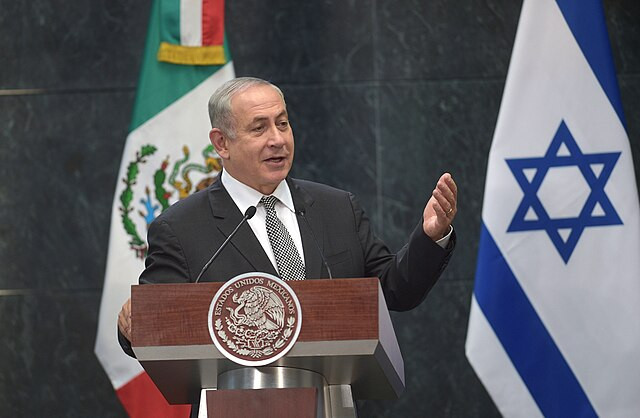Israel carried out an airstrike on southern Beirut on Friday, marking its first attack on the Lebanese capital since a U.S.-brokered ceasefire agreement went into effect in November. The Israeli military said it targeted a drone storage facility operated by Hezbollah in the Dahiyeh neighborhood, a longtime stronghold of the Iran-backed militant group.
The Israel Defense Forces said it struck "a terrorist infrastructure site used to store UAVs by Hezbollah's Aerial Unit (127)," and accused the group of embedding its assets among civilians. Hezbollah “systematically embeds its terrorist infrastructure amidst the Lebanese civilian population, a clear example of Hezbollah's cynical exploitation of Lebanese civilians as human shields," the IDF stated.
The strike followed the firing of two projectiles from southern Lebanon into northern Israel earlier in the day, triggering air raid sirens and prompting a series of retaliatory strikes. The Israeli military said the incoming rocket fire "constitutes a blatant violation of the understandings between Israel and Lebanon and a direct threat to the citizens of the State of Israel."
Before launching the strike on Beirut, Israel issued evacuation warnings to residents of the targeted area. "To everyone located in the building marked in red on the map, as well as the surrounding buildings: you are in close proximity to Hezbollah-affiliated facilities," the IDF said in a statement. "For your safety and the safety of your families, you must evacuate these buildings immediately and move at least 300 meters away."
The strikes ignited panic in the densely populated suburb, sending residents fleeing on foot amid traffic jams and rising smoke, according to reports from the scene. Lebanon's state-run National News Agency reported that schools in the area were ordered closed for the day.
Hezbollah denied responsibility for the rocket fire that prompted the Israeli response. The Lebanese Army confirmed that it had located a rocket launch site and had opened an investigation to identify those responsible.
Lebanese President Joseph Aoun condemned the Israeli strikes, calling them "a blatant and repeated violation of Lebanon's sovereignty and the security of its citizens, a challenge to international law, and a flagrant breach of the ceasefire agreement." In a statement from Paris, where he met with French President Emmanuel Macron, Aoun said, the onus is on the international community to "put an end to these attacks and force Israel to abide by the agreement, just as Lebanon is committed to it."
Israeli Prime Minister Benjamin Netanyahu defended the military action. "Those who have not yet accepted the new situation in Lebanon received another example of our determination today," Netanyahu said. "The equation has changed - what happened before October 7 will not be repeated."
"We will continue to vigorously enforce the ceasefire," he added. "We will attack anywhere in Lebanon against any threat to Israel, and we will ensure that all of us in the north return to their homes safely."
Defense Minister Israel Katz reiterated the warning, stating, "If there is no peace in Kiryat Shmona and the Galilee communities, there will be no peace in Beirut either."
The United Nations Special Coordinator for Lebanon, Jeanine Hennis-Plasschaert, expressed alarm over the cross-border escalation. "Any exchange of fire is one too many," she said. "A return to wider conflict in Lebanon would be devastating for civilians on both sides of the Blue Line and must be avoided at all costs."




